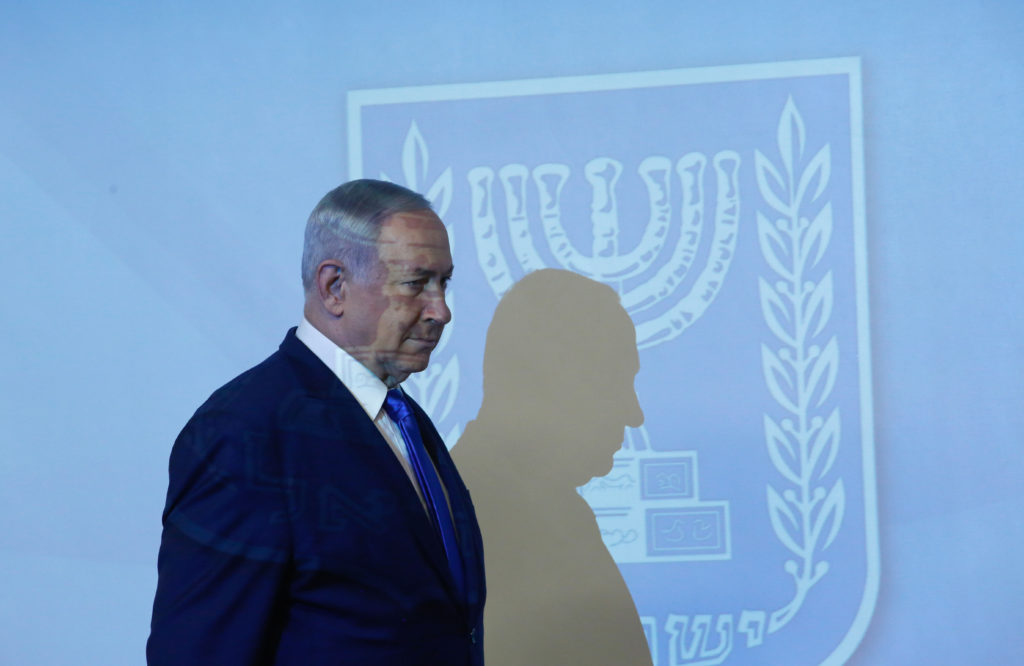IN THE MEDIA
Netanyahu’s critics ignore Israel’s right to security, peace
January 29, 2024 | Colin Rubenstein

The Australian – 29 January 2024
Much is being made of Israeli PM Binyamin Netanyahu’s comments at a January 18 media conference that, regarding the West Bank and Gaza, “in any future arrangement, or in the absence of an arrangement,” Israel must maintain “security control” over all territory west of the Jordan River. He noted this “contradicts with the idea of sovereignty [for the Palestinians].”
Netanyahu is clearly engaged in a significant disagreement with the Biden Administration over the latter’s emphasis on promises to move as rapidly as possible toward Palestinian statehood in post-war arrangements for Gaza. However, many are falsely treating Netanyahu’s comments as the death knell of any two-state resolution – or worse, proof Israel has always secretly opposed such a resolution.
In fact, as Biden himself said in responding to Netanyahu’s claims, “There are a number of types of two-state solutions. There’s a number of countries that… don’t have their own militaries… states that have limitations.” Indeed, there are ways to reconcile ongoing Israeli security control with Palestinian self-determination. Exploring such options is now imperative in the wake of the changed conditions created by the October 7 massacre.
Netanyahu’s actual arguments about why Israel needs security control over the West Bank and Gaza make considerable sense. Netanyahu said, “All territory we evacuate, we get terror, terrible terror against us,” citing Gaza, southern Lebanon and parts of the West Bank. Historically, he’s not wrong – Israel withdrew from the cities of the West Bank in 1994-95 as part of the Oslo peace process and got a wave of Hamas suicide terror at that time. Then, from 2000-2004, the second intifada saw more than 1000 Israelis murdered in cafes, pizzerias, hotels, buses, and on the streets in terror attacks mostly emanating from those same West Bank cities.
And following the withdrawal from Southern Lebanon in 2000, Hezbollah seized control of the area and filled it with thousands of missiles and fighters. Hezbollah has launched hundreds of attacks on Israel’s north over the past few months.
And then there is the blisteringly clear example of Gaza. Since Israel’s unilateral pull-out in 2005, Gaza has been the closest thing to a fully independent Palestinian state that ever existed, completely controlled by a Palestinian government. Yet Israel has suffered near-constant attacks from there and been forced to fight several wars. Then, the unprecedented and unprovoked wave of mass-murder inside Israel savagely perpetrated on October 7 drove home to almost all Israelis how utterly dangerous to their essential security even a militarily much weaker Palestinian entity next door can be – especially when backed by a hostile foreign power, given Hamas was armed, funded and trained by Iran.
Netanyahu also said the terror threat is “not about the absence of a state, a Palestinian state, but rather about the existence of a state, a Jewish state.” Again, persuasive – Israel agreed to peace offers that would have created a Palestinian state in 2000, 2001 and 2008, and made major progress on a US mediated two-state peace plan in 2013-14. These were not only rejected, but the 2000 offer was met with the Second Intifada, while the 2013-14 talks led to a wave of terror known as the “knife Intifada” in 2015-16.
These realities – and especially October 7 – explain why Israeli President Itzhak Herzog, a man of Israel’s centre-left, told the World Economic Forum in Davos on Jan. 18 that in Israel today, “Nobody in his right mind is willing now to think about what will be the solution of the peace agreements, because everybody wants to know: Can we be promised real safety in the future?”
The Biden Administration sees visibly pushing the idea of rapid progress toward Palestinian statehood as a good way to get buy-in from Arab states toward rebuilding Gaza and helping administer it once Hamas is removed from power there. However, as Netanyahu’s comments indicated, October 7 inevitably and rightly changed the approach of most Israelis to this issue, with unregulated Palestinian statehood now seen as all but synonymous with unendurable Israeli insecurity, regular mass terror, and constant rocket attacks.
Some appear determined to deny this reality, focusing on Netanyahu himself, falsely claiming that he has always rejected Palestinian statehood. In fact, in 2009, Netanyahu very publicly accepted the idea of a demilitarised Palestinian state, and made several key concessions designed to facilitate negotiations toward such a state, include a 10-month settlement freeze. Following the 2013-14 US-brokered negotiations, US Middle East envoy Martin Indyk said Israeli PM Netanyahu “sweated bullets” to try and reach a two-state deal. Netanyahu also publicly accepted the 2020 Trump plan that envisioned Palestinian statehood.
According to Israeli government spokesman Eylon Levy, the rationale for Netanyahu’s current stance is so that “Palestinian terrorists can’t pull off another October 7. They should have all the powers to govern themselves, and none of the powers to massacre us.” In the circumstances, that hardly seems unreasonable.
Jewish Israelis and Palestinians share a land, and neither will either leave or give up their national aspirations, so Australia’s long-standing bipartisan policy of supporting an eventual two-state resolution remains appropriate. But the world needs to recognise that the pre-conditions for such a resolution have inevitably been altered significantly since October 7.
First and foremost, the world needs to explore creative, novel and convincing arrangements to address the well-founded and severe insecurity of Israelis created by the long-standing domination of Palestinian politics by rejectionist groups devoted to fomenting terrorism against all Israelis. And to encourage the emergence of a Palestinian leadership willing to live in peace alongside Israel rather than remaining intent on destroying it.





